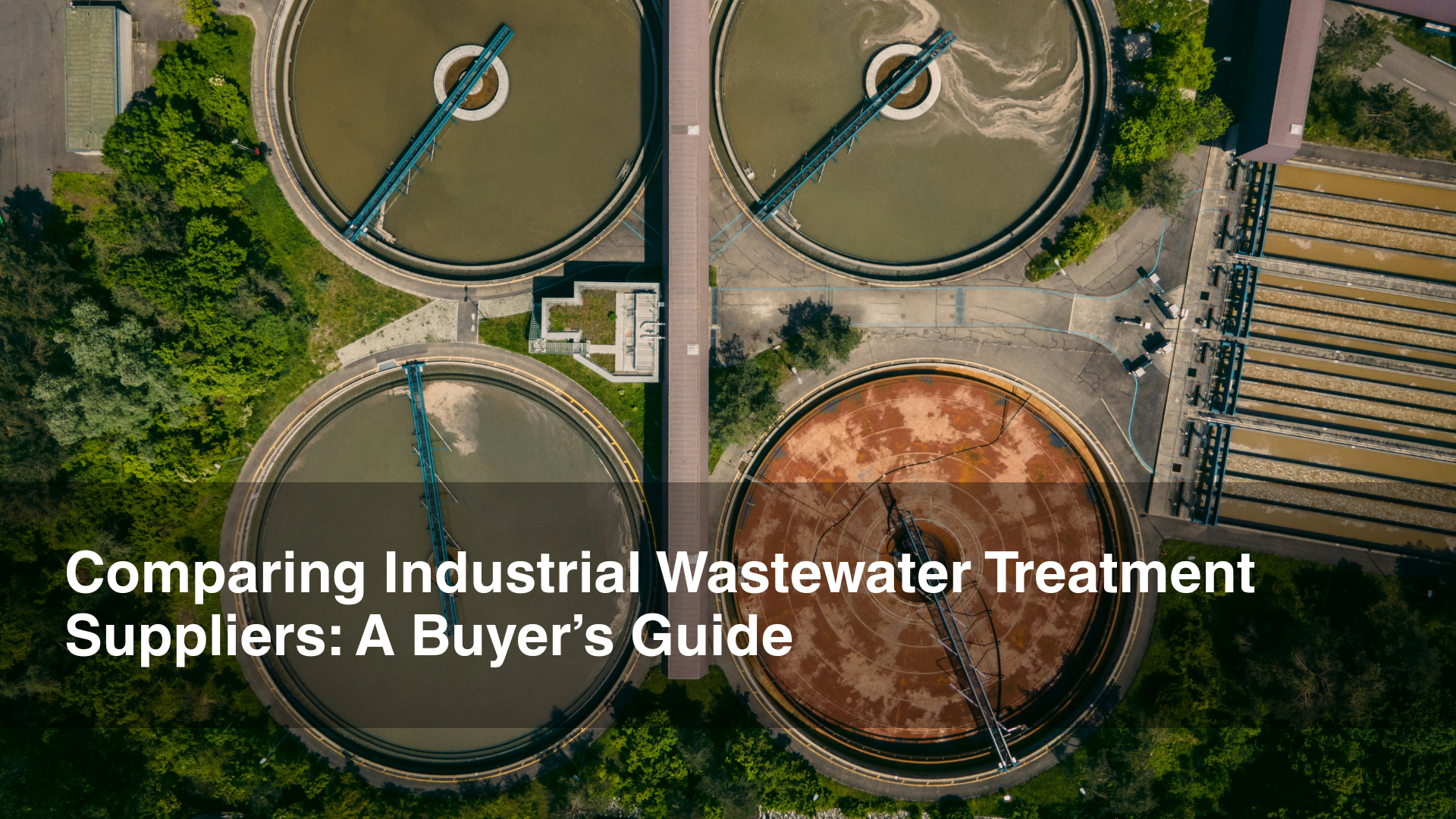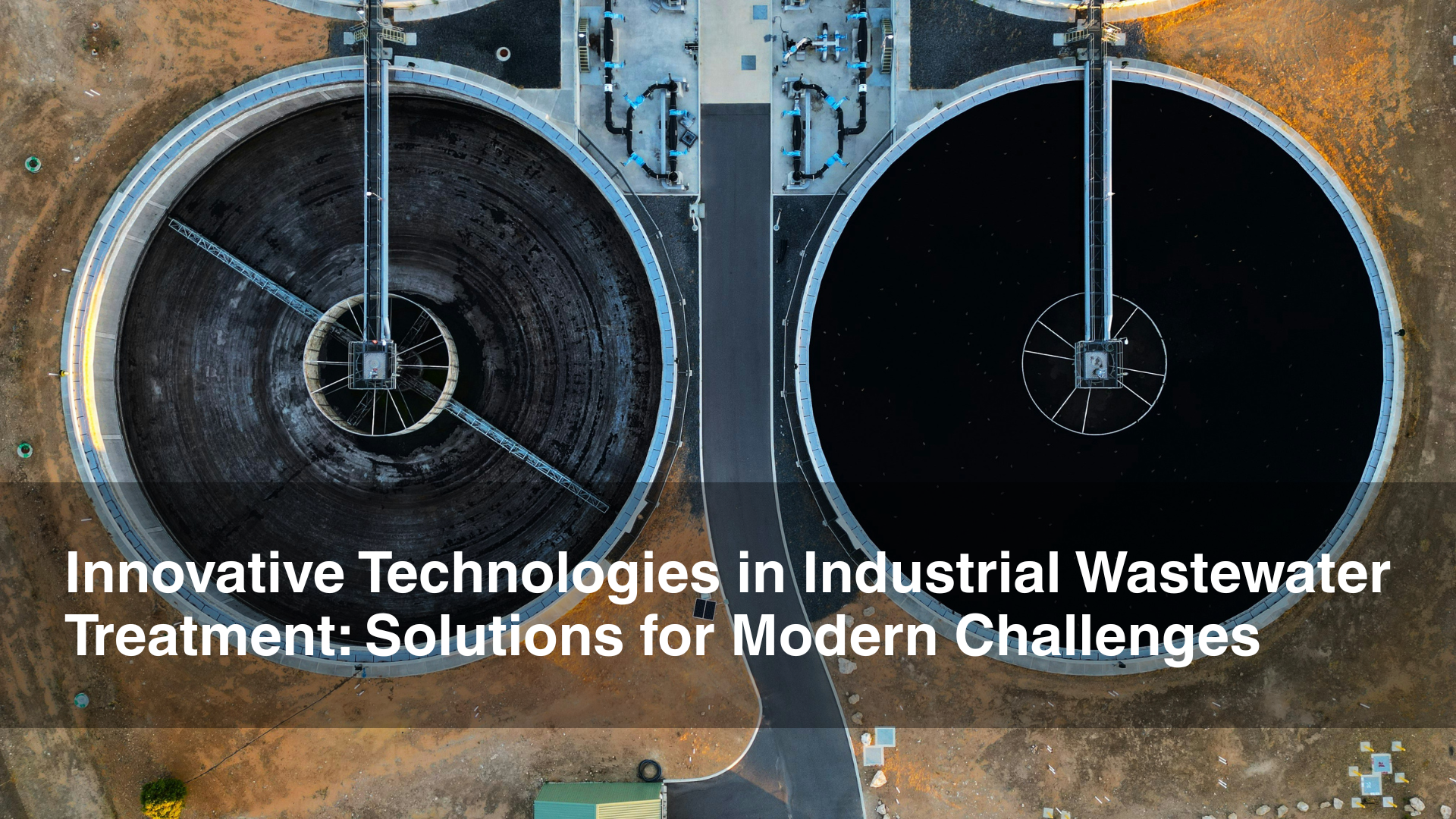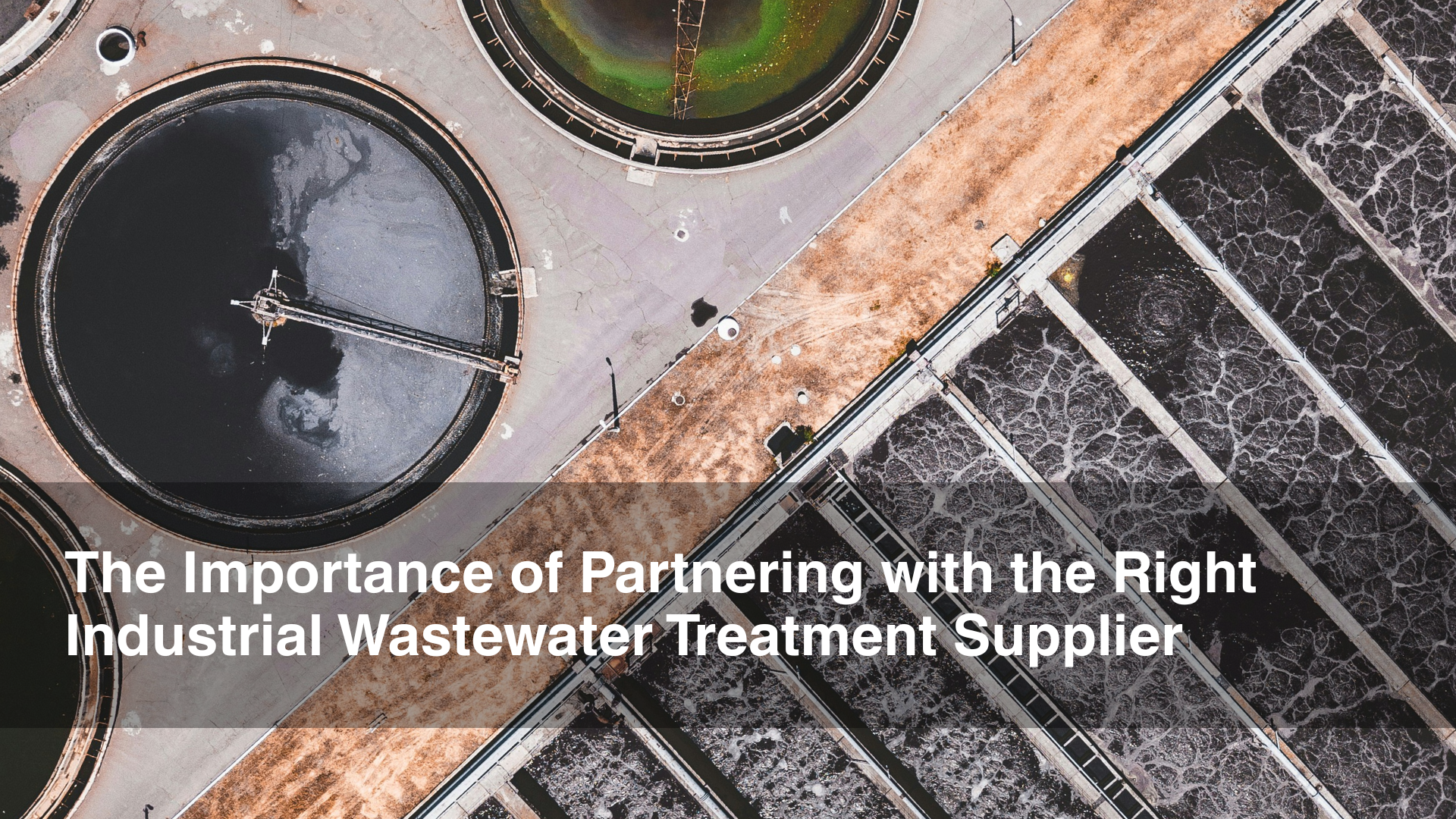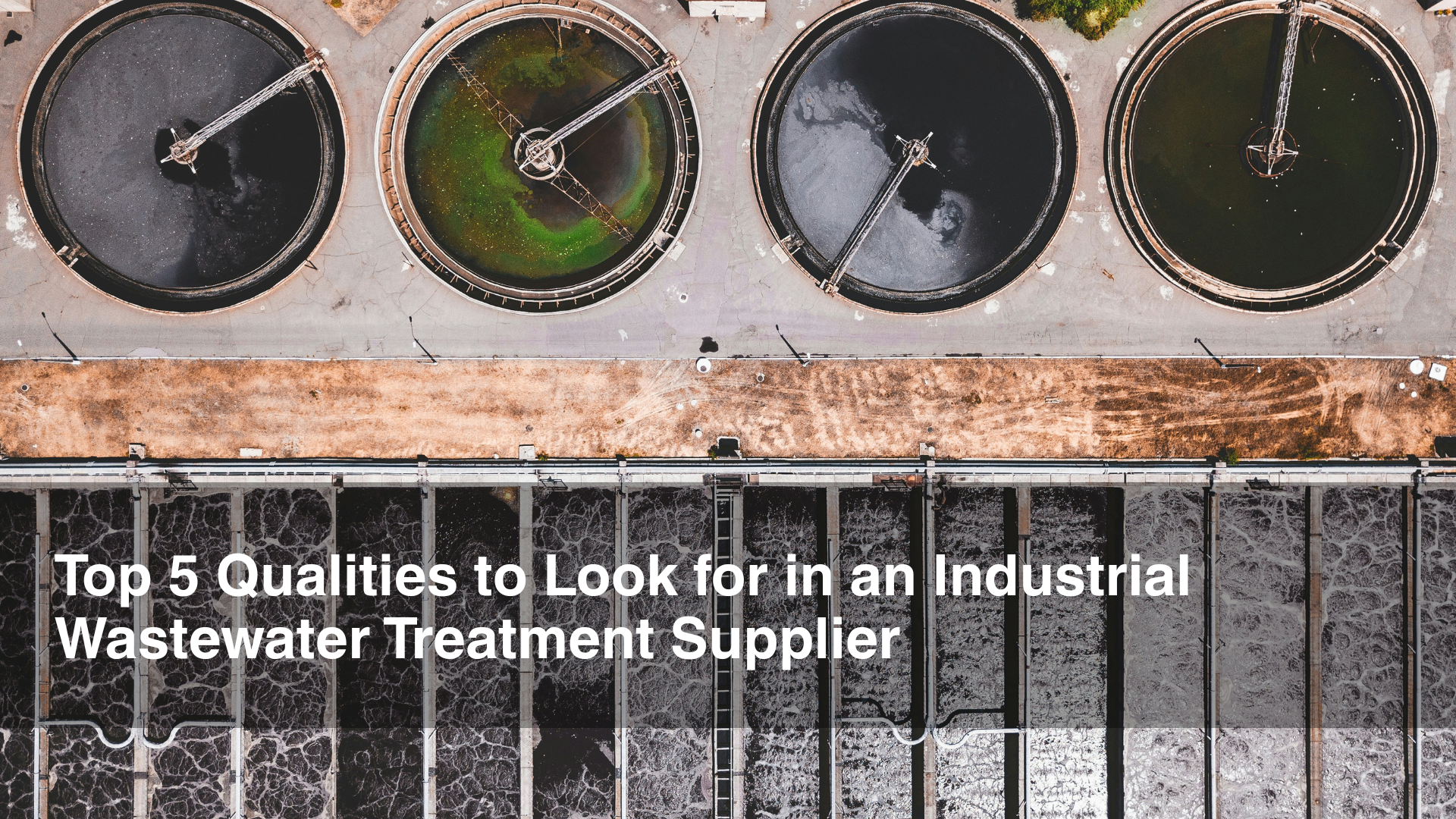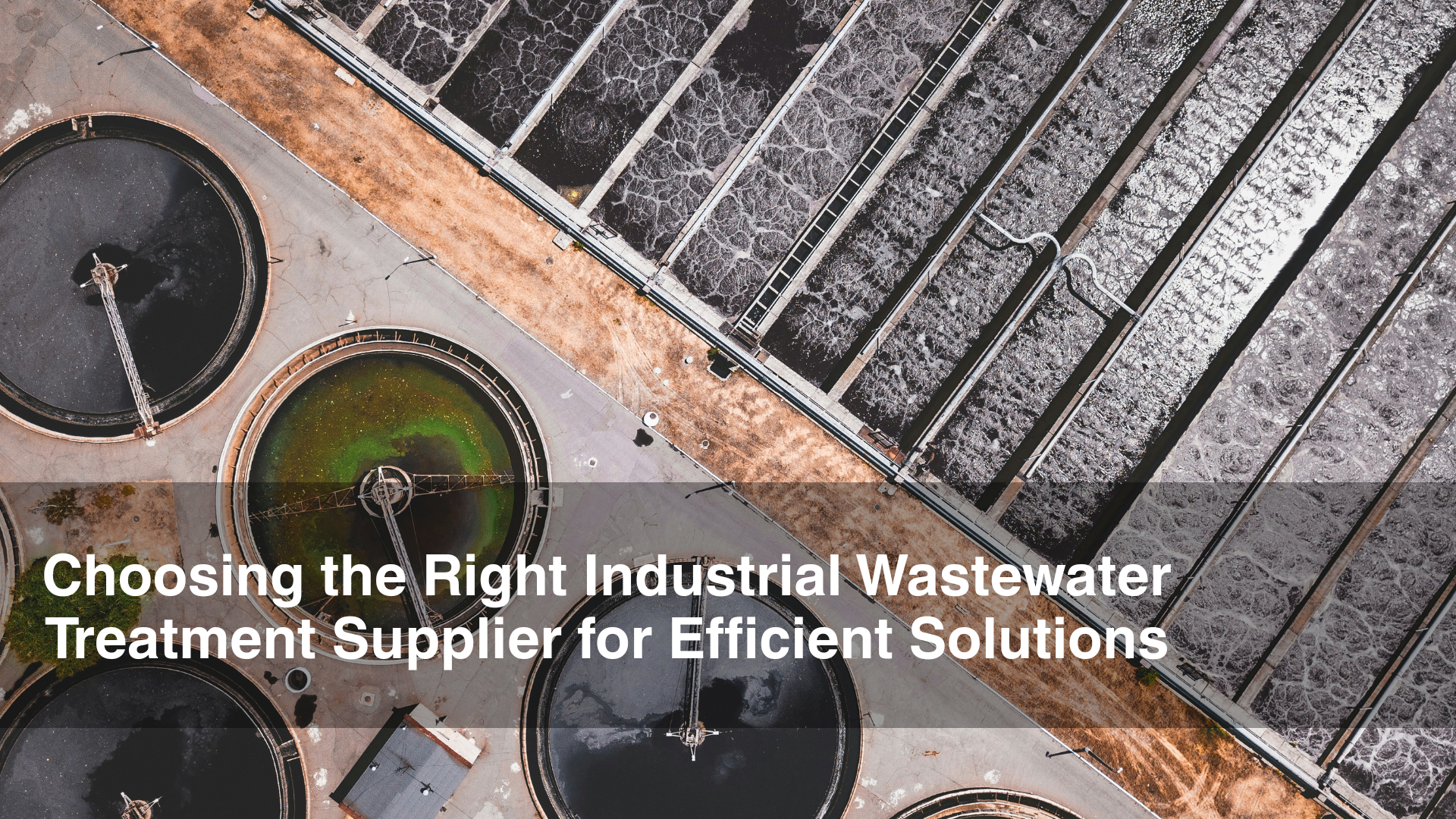Introduction to Industrial Wastewater Treatment
Industrial wastewater treatment is a critical component of environmental management, focusing on the safe and effective processing of wastewater produced by various industrial activities. This treatment is vital in mitigating the adverse effects of untreated wastewater on ecosystems, public health, and regulatory compliance. As industries expand, the volume and complexity of wastewater generated increase, necessitating robust treatment solutions tailored to specific industrial needs.
Failure to adequately treat wastewater can lead to severe environmental repercussions, including contamination of local water bodies, soil degradation, and negative impacts on aquatic life. Additionally, untreated wastewater poses significant risks to public health, potentially harboring harmful pathogens and chemicals. These dangers highlight the necessity for industries to adopt comprehensive wastewater management strategies, making the role of an industrial wastewater treatment supplier crucial. These suppliers provide essential technologies and services that ensure compliance with regulations while promoting sustainable practices.
Furthermore, many industries face strict regulations regarding wastewater discharge, with governmental bodies enforcing standards to protect water quality. Non-compliance can lead to substantial penalties, legal troubles, and damage to a company’s reputation. By partnering with experienced industrial wastewater treatment suppliers, companies can access cutting-edge solutions that not only meet legal requirements but also promote operational efficiency and environmental stewardship.
In the quest for a trusted supplier, it is essential for industries to assess the range of available treatment technologies, the supplier’s expertise, and their commitment to innovation. In the forthcoming sections, we will delve deeper into the evaluating factors when selecting an industrial wastewater treatment supplier that aligns with industry-specific demands and environmental goals.
Factors to Consider When Choosing a Supplier
Selecting the right industrial wastewater treatment supplier is crucial for any organization seeking effective solutions to manage its wastewater. The process involves evaluating a variety of factors to ensure that a supplier can meet specific operational and regulatory needs. One of the first aspects to consider is the technology offered by the supplier. Different suppliers may specialize in varied treatment methods, ranging from biological processes to advanced filtration technologies. An understanding of the treatment technologies available will help organizations identify the most suitable options for their specific wastewater characteristics.
Another critical factor is the supplier’s experience and reputation in the industry. A well-established supplier with a proven track record is likely to provide reliable solutions and expertise. It is beneficial to look for testimonials, case studies, and reviews from other clients. This information can offer insights into the supplier’s customer service and their effectiveness in addressing complex wastewater issues. Additionally, evaluating the supplier’s compliance with local and national regulations is essential, as non-compliance can lead to significant penalties and operational disruptions.
Operational support is also a key consideration when selecting an industrial wastewater treatment supplier. Evaluate the level of technical support, training, and maintenance services that the supplier offers to ensure smooth operations. This includes assessing whether the supplier provides ongoing assistance after the installation of treatment systems. Finally, cost is always a significant concern; however, it should not be the sole determining factor. Conducting a comprehensive cost-benefit analysis can help in understanding the long-term value offered by a supplier’s solutions compared to initial expenditure. By meticulously evaluating these factors, industries can make informed decisions when choosing their industrial wastewater treatment supplier.
Key Factors to Consider When Choosing an Industrial Wastewater Treatment Supplier
Industries facing wastewater challenges must consider various treatment technologies offered by capable industrial wastewater treatment suppliers. Understanding these different methods is crucial to determining the most suitable solution for specific needs. The main categories of wastewater treatment technologies are physical, chemical, and biological methods, each presenting distinct advantages and disadvantages.
Physical treatment methods involve the direct removal of contaminants through processes such as filtration, sedimentation, and flotation. These techniques are often the first step in wastewater treatment, concentrating on separating solids from liquids. The primary advantage of these methods is their simplicity and low operational cost. However, they may be insufficient for removing dissolved substances, thereby necessitating additional treatment stages.
Chemical treatment methods utilize chemical reactions to remove contaminants from wastewater. Common techniques include coagulation, flocculation, and disinfection. These methods can effectively eliminate pathogens and reduce harmful pollutants to meet regulatory standards. While chemical treatment can provide fast and effective results, it also raises concerns regarding the handling and disposal of chemical by-products, which can pose environmental and health risks.
Lastly, biological treatment methods harness the natural processes of microorganisms to break down organic contaminants. These methods include activated sludge systems, trickling filters, and anaerobic digesters. Biological treatments are often praised for their efficiency in treating high volumes of organic waste, and they can be cost-effective in the long term. However, they require more extensive operational control and monitoring, focusing on maintaining optimal conditions for microbial activity.
In conclusion, selecting the right industrial wastewater treatment technology necessitates an understanding of the specific characteristics and limitations of each method. By evaluating the pros and cons, industries can work closely with their chosen industrial wastewater treatment suppliers to implement the most effective solutions tailored to their operational needs.
Evaluating Industrial Wastewater Treatment Supplier Qualifications and Experience
When selecting an industrial wastewater treatment supplier, it is essential to evaluate their qualifications and experience thoroughly. This process entails a systematic assessment of various factors that contribute to the supplier’s ability to deliver effective wastewater treatment solutions.
One of the primary steps is to review the certifications held by the supplier. Industry-standard certifications ensure that the provider adheres to specific regulatory requirements and quality control measures essential for effective wastewater management. Certifications can include those from environmental agencies, safety organizations, or quality management standards such as ISO 9001. A certified supplier is often more reliable, having undergone rigorous evaluations for compliance with industry norms.
In addition to certifications, examining the supplier’s project portfolio can provide valuable insights into their experience and capabilities. This portfolio should illustrate the range and complexity of projects handled, demonstrating their expertise in treating different types of industrial wastewater. Consideration should also be given to the supplier’s historical performance, particularly regarding timely project execution and the success rate of their treatment processes. Suppliers with a diverse portfolio are usually well-equipped to handle varying challenges posed by different wastewater types.
Conducting background checks is another critical step in evaluating potential suppliers. This may involve researching their market reputation through customer reviews, case studies, or testimonials. Reaching out to former or current clients for references can provide firsthand insights into the supplier’s reliability, professionalism, and overall effectiveness. A proven track record not only ensures that the supplier is competent but also reassures businesses that they are making a sound investment in their wastewater treatment needs.
In conclusion, thoroughly assessing supplier qualifications through certifications, project portfolios, and background checks is instrumental. This diligent evaluation ensures that the chosen industrial wastewater treatment supplier is capable of meeting the specific requirements of your business effectively and sustainably.
Understanding Regulatory Compliance and Standards for Industrial Wastewater Treatment Suppliers
In the realm of industrial wastewater treatment, regulatory compliance plays a pivotal role in the selection of a suitable supplier. It is essential for businesses to navigate through local, state, and federal regulations that govern wastewater management processes. These regulations are designed to safeguard public health and the environment by minimizing the harmful effects of wastewater discharge. Consequently, they serve as benchmarks for evaluating potential industrial wastewater treatment suppliers.
Different industries may be subject to various compliance standards, such as the Clean Water Act in the United States, which establishes guidelines for discharge limits and treatment practices. Understanding the intricacies of these regulations is imperative for organizations to avoid legal ramifications, fines, and potential disruptions to operations that may arise from non-compliance. Furthermore, when assessing suppliers, companies should prioritize those that possess relevant certifications and licenses, indicating their adherence to these regulations. Supplier certifications could include ISO standards or local environmental permits, serving as proof of their capability to effectively handle wastewater treatment in accordance with regulatory frameworks.
A dependable industrial wastewater treatment supplier should demonstrate proficiency in maintaining compliance with ever-evolving regulations. This includes not only the upfront knowledge of existing laws but also an active approach towards staying updated on regulatory changes. Engaging with suppliers that prioritize continued education and compliance will ensure long-term sustainability and peace of mind for businesses handling industrial wastewater. Ultimately, the integration of compliance considerations into the supplier evaluation process is critical, as it significantly impacts the overall effectiveness of wastewater treatment solutions while safeguarding the ecological balance.
Comparative Analysis of Supplier Pricing Models
The landscape of industrial wastewater treatment is diverse, with various suppliers employing different pricing models that can significantly impact operational costs. Understanding these models is crucial for businesses seeking to partner with an industrial wastewater treatment supplier effectively. The two predominant pricing structures are fixed pricing and variable pricing. Each has its advantages and drawbacks, making the selection process vital for cost management and service quality.
Fixed pricing typically offers stability and predictability. Such models allow businesses to forecast their budgets accurately, as vendors establish a set fee for the services rendered over a specified period. This can be particularly advantageous for companies that have consistent and predictable wastewater treatment needs. Moreover, fixed pricing often simplifies contract negotiations, as both parties can agree on clear terms without the fear of unexpected costs arising from unforeseen changes in service requirements.
On the other hand, variable pricing models are often more flexible, allowing firms to pay according to usage or service levels. This can be beneficial for companies that experience fluctuating wastewater volumes. However, this model demands rigorous monitoring of actual consumption to avoid potential overspending. Businesses favoring this pricing model should ensure they collaborate with an industrial wastewater treatment supplier that maintains transparency regarding pricing adjustments and service costs.
When evaluating the cost-effectiveness of these pricing models, it is essential to consider not only the price but also the quality of service provided. A lower-priced option may compromise the treatment efficiency or result in higher long-term costs due to penalties or fines. Engaging in negotiations with suppliers can yield favorable terms, particularly if long-term commitments or bulk service agreements are proposed. Assessing supplier performance through thorough due diligence and seeking testimonials from other clients can enhance decision-making processes in selecting the right industrial wastewater treatment supplier.
Case Studies and Success Stories
To illustrate the feasibility and effectiveness of choosing an appropriate industrial wastewater treatment supplier, let us examine several case studies from a variety of industries that have successfully collaborated with these specialized service providers.
One noteworthy example is a manufacturing facility specializing in automobile parts. This facility faced significant challenges due to the discharge of toxic metals and organic compounds in its wastewater. Upon engaging a reputable industrial wastewater treatment supplier, they implemented an advanced treatment solution involving a combination of chemical precipitation and membrane filtration. The results were remarkable; post-treatment effluent met regulatory standards, resulting in a 50% reduction in treatment costs and a notable decrease in environmental impact. This case underscores the importance of selecting a supplier with proven expertise in handling complex contaminants.
Another case involves a food processing plant that struggled with high organic loads in their wastewater. The facility turned to an industrial wastewater treatment supplier known for its bio-augmentation techniques. By introducing specific microbial blends tailored for the degradation of organic material, the plant achieved a substantial reduction in biochemical oxygen demand (BOD) levels. Not only did they comply with local discharge regulations, but they also enhanced their operational efficiency, ultimately saving time and resources.
A third example can be drawn from the pharmaceutical sector, where an industry leader faced stringent regulatory requirements regarding the disposal of effluents containing active pharmaceutical ingredients (APIs). The company partnered with an industrial wastewater treatment supplier specializing in advanced oxidation processes. This collaboration resulted in the successful degradation of APs in wastewater, enabling the company to bolster its sustainability initiatives and preserve public trust. These real-world applications emphasize the critical role of effective supplier partnerships in addressing wastewater challenges across various sectors.
Red Flags to Watch Out For
When selecting an industrial wastewater treatment supplier, buyers must be vigilant and discerning, as the choice of a supplier can significantly impact operational efficiency and environmental compliance. One of the key red flags to watch out for is a lack of transparency. Suppliers that are unwilling to disclose important information about their services, technologies, or pricing structures should raise concerns. Transparency in operations is essential for establishing trust and ensures that clients are fully informed about the processes and technologies that will be employed in their wastewater treatment.
Poor communication is another alarming sign that a supplier may not be a suitable partner. Effective communication is critical throughout the relationship, especially when addressing technical issues or operational challenges. Suppliers who respond slowly to inquiries or fail to provide clear explanations may not have the expertise or commitment required for effective collaboration. Engaging with a responsive supplier is vital for a seamless operation.
Inadequate financial stability of a potential industrial wastewater treatment supplier is also a significant red flag. A company facing financial difficulties may not have the resources needed to maintain its equipment or invest in necessary upgrades, potentially leading to service interruptions or a decline in quality. Before signing a contract, buyers should assess the supplier’s financial health through credit ratings or financial reports.
Lastly, negative feedback from previous clients should not be overlooked. Researching reviews and testimonials can provide valuable insights into the supplier’s reliability and performance. A pattern of complaints or dissatisfaction may indicate underlying issues that warrant further scrutiny. By recognizing these red flags—lack of transparency, poor communication, financial instability, and negative client feedback—buyers can make informed decisions and avoid costly mistakes in choosing the right industrial wastewater treatment supplier.
Conclusion and Next Steps in Choosing Your Industrial Wastewater Treatment Supplier
In the realm of industrial wastewater management, selecting the right supplier is crucial to ensuring compliance with environmental standards and optimizing operational efficiency. This guide has provided a comprehensive overview of factors to consider when evaluating industrial wastewater treatment suppliers. The significance of matching a supplier’s expertise with your specific needs cannot be overstated, as it directly influences the effectiveness of the treatment solutions implemented.
Key takeaways include the importance of understanding the specific requirements of your facility and how these interact with the capabilities offered by potential suppliers. An effective assessment involves not just the technological solutions provided by an industrial wastewater treatment supplier, but also their track record, customer support, and the adaptability of their systems to meet evolving regulatory demands.
Moreover, consider the supplier’s commitment to innovation and sustainability, as these will play a pivotal role in the longevity and effectiveness of your wastewater treatment processes. Engaging in thorough consultations with prospective suppliers, as discussed earlier in the guide, can yield valuable insights and lead to fruitful partnerships. It is advisable to request case studies or references from previous clients to gauge the reliability and performance of the supplier’s solutions.
As you embark on the supplier selection process, establish a checklist of essential criteria that aligns with your operational goals. This may involve prioritizing certain aspects such as cost, technology, service flexibility, and support infrastructure. By maintaining a clear focus on your unique requirements, you will be well-positioned to make a well-informed decision that enhances your wastewater treatment strategy and ultimately supports your facility’s sustainability objectives.

